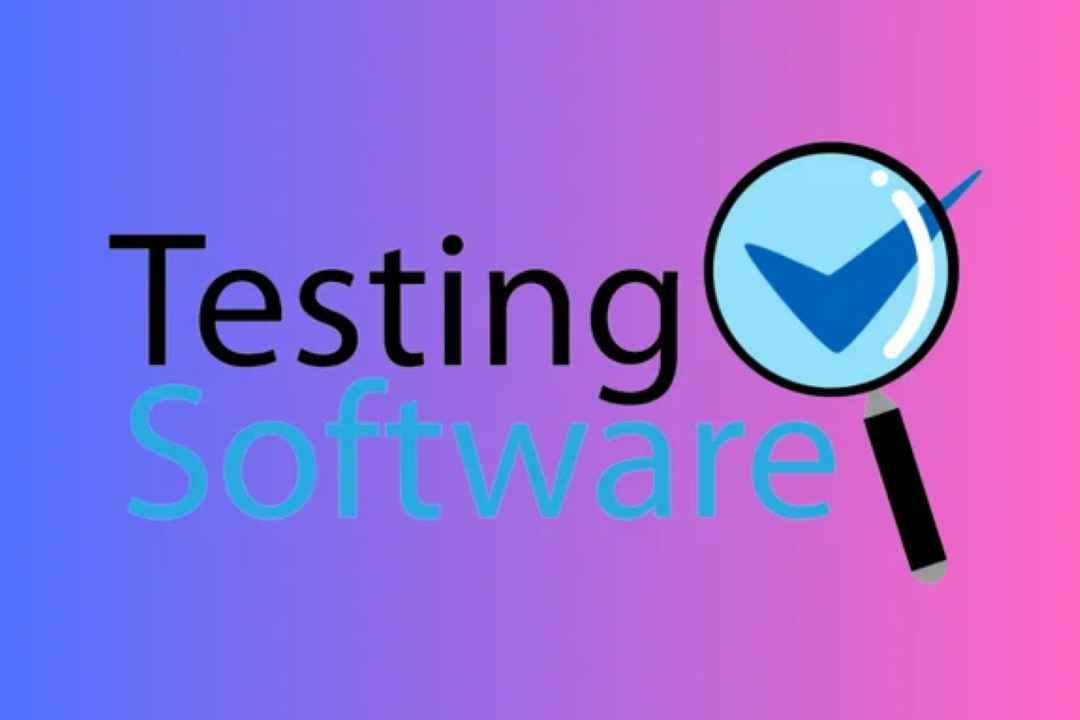Software Testing Learn Manual QA Testing ISTQB CTFL Help Download
Software testing is a crucial aspect of the software development lifecycle, ensuring that applicatio
Software Testing Learn Manual QA Testing ISTQB CTFL Help Download
Software testing is essential for ensuring that applications function correctly and meet user expectations. Learning manual QA testing through the ISTQB Certified Tester Foundation Level (CTFL) certification equips you with foundational knowledge and practical skills in various testing techniques and methodologies. This certification not only enhances your understanding of testing processes but also prepares you for real-world scenarios where identifying defects and ensuring quality are crucial. By downloading our comprehensive study materials and course guides, you can effectively prepare for the CTFL exam and boost your career in the software quality assurance domain, making yourself a valuable asset to any development team.
To Download Our Brochure: https://www.justacademy.co/download-brochure-for-free
Message us for more information: +91 9987184296
Software testing is essential for ensuring that applications function correctly and meet user expectations. Learning manual QA testing through the ISTQB Certified Tester Foundation Level (CTFL) certification equips you with foundational knowledge and practical skills in various testing techniques and methodologies. This certification not only enhances your understanding of testing processes but also prepares you for real world scenarios where identifying defects and ensuring quality are crucial. By downloading our comprehensive study materials and course guides, you can effectively prepare for the CTFL exam and boost your career in the software quality assurance domain, making yourself a valuable asset to any development team.
Course Overview
The “Software Testing: Learn Manual QA Testing ISTQB CTFL” course provides a comprehensive foundation in software quality assurance, focusing on manual testing principles as outlined by the ISTQB Certified Tester Foundation Level. Participants will explore various testing methodologies, techniques, and processes that ensure software reliability and functionality. Through engaging real-time projects and practical exercises, learners will develop essential skills in test case design, defect identification, and reporting. The course equips students with the knowledge needed to confidently approach the ISTQB CTFL exam and succeed in the competitive field of software testing, bolstered by accessible downloadable resources for effective study.
Course Description
The “Software Testing: Learn Manual QA Testing ISTQB CTFL Help Download” course offers an in-depth exploration of manual quality assurance practices, aligned with the ISTQB Certified Tester Foundation Level framework. This course is designed to empower learners with essential skills in software testing, encompassing test planning, design, execution, and defect reporting. Participants will engage in practical, real-time projects that simulate industry scenarios, enhancing their understanding of various testing methodologies and tools. With downloadable resources for additional support, this course equips aspiring testers with the knowledge and confidence needed to excel in the ISTQB CTFL exam and build a solid career in software testing. Join us at JustAcademy to begin your journey in quality assurance today!
Key Features
1 - Comprehensive Tool Coverage: Provides hands-on training with a range of industry-standard testing tools, including Selenium, JIRA, LoadRunner, and TestRail.
2) Practical Exercises: Features real-world exercises and case studies to apply tools in various testing scenarios.
3) Interactive Learning: Includes interactive sessions with industry experts for personalized feedback and guidance.
4) Detailed Tutorials: Offers extensive tutorials and documentation on tool functionalities and best practices.
5) Advanced Techniques: Covers both fundamental and advanced techniques for using testing tools effectively.
6) Data Visualization: Integrates tools for visualizing test metrics and results, enhancing data interpretation and decision-making.
7) Tool Integration: Teaches how to integrate testing tools into the software development lifecycle for streamlined workflows.
8) Project-Based Learning: Focuses on project-based learning to build practical skills and create a portfolio of completed tasks.
9) Career Support: Provides resources and support for applying learned skills to real-world job scenarios, including resume building and interview preparation.
10) Up-to-Date Content: Ensures that course materials reflect the latest industry standards and tool updates.
Benefits of taking our course
Functional Tools
1 - Selenium: Selenium is one of the most widely used tools for automating web applications. It supports various programming languages such as Java, Python, and C#. In this course, students will learn how to utilize Selenium to create automated test scripts that can simulate user interactions with web applications, validating functionality, and ensuring reliability. The hands on experience with Selenium will prepare students to handle real world scenarios effectively and improve testing efficiency.
2) JIRA: JIRA is a powerful project management tool commonly used in Agile and DevOps environments to track issues, bugs, and project progress. In the training program, students will be trained on how to document and manage defects, streamline communication within teams, and prioritize tasks effectively using JIRA. Gaining proficiency with JIRA not only enhances collaboration during the testing process but also provides insight into complete project workflows.
3) Postman: Postman is a popular tool for testing APIs. Through this course, students will explore how to leverage Postman to create and execute API requests, validate responses, and handle JSON or XML data effectively. This knowledge is critical as API testing is an integral part of software quality assurance, ensuring that different components of an application interact seamlessly.
4) TestRail: TestRail is a comprehensive test case management tool that allows testers to organize their testing efforts effectively. Participants will learn how to create, manage, and execute test cases while tracking results and reporting on testing progress within TestRail. This organized approach to managing test cases improves overall testing efficiency and provides clear insights into test coverage and executed tests.
5) SoapUI: SoapUI is a cornerstone tool for testing SOAP and REST web services. In this course, students will gain hands on experience with SoapUI, enabling them to create complex test cases, validate web service functionality, and conduct load testing. The ability to test web services thoroughly is increasingly important in today’s interconnected applications.
6) QTest: QTest is a leading test management tool that integrates well with various development and DevOps tools. In the training program, students will learn how to use QTest for managing test cycles, analyzing results, and generating detailed reports. This systematic approach to testing helps maintain high standards of quality and efficiency throughout the software development life cycle.
7) Git: Git is a version control system widely used in software development. This course includes training on using Git for managing test scripts and collaborating within teams. Understanding version control is essential for maintaining a clear history of modifications and enhancing collaboration in testing environments. By mastering Git, students will be able to participate in team projects effectively and ensure consistency and integrity in their testing efforts.
8) Apache JMeter: JMeter is an open source tool used for performance testing. In this course, learners will explore how to design performance test scenarios with JMeter to determine how applications behave under load. This knowledge is crucial for ensuring that applications meet performance standards and can handle user traffic efficiently.
9) Burp Suite: Burp Suite is a popular tool for security testing of web applications. The course will introduce students to the essential features of Burp Suite, allowing them to perform vulnerability assessments and penetration tests on web applications. Understanding security testing is vital in today’s development landscape, ensuring applications are resilient against threats and safeguarding user data.
By mastering these tools, students will be well prepared to enter the software testing job market with a strong skill set that addresses the diverse needs of quality assurance in today’s technology landscape.
Expanding the course offerings further enhances the value provided to students seeking certifications in software testing. Below are additional training topics and tools that can be included to broaden the learning experience:
10) Cucumber: Cucumber is a tool that supports Behavior Driven Development (BDD). In this module, students will learn to write readable and maintainable test scenarios using Gherkin syntax. The course emphasizes collaboration between technical and non technical team members, helping to build a shared understanding of requirements and expectations, which results in more effective testing outcomes.
11 - Appium: Appium is an open source tool for automating mobile applications across both Android and iOS platforms. This course will cover mobile testing frameworks, allowing students to write tests using various programming languages and test frameworks. Expertise in mobile testing is crucial as mobile applications continue to gain prominence, ensuring that students can address specific challenges in mobile environments.
12) ServiceNow: ServiceNow is an IT service management tool that offers capabilities for automating workflows and service delivery. Students will explore how to use ServiceNow in the context of QA, focusing on the integration of testing processes within an ITIL framework. This knowledge will enable students to contribute to improving operational efficiencies in QA and IT service management.
13) Robot Framework: Robot Framework is an open source automation framework that utilizes a keyword driven approach for test automation. This course emphasizes writing reusable test scripts that increase efficiency and maintainability. Knowledge of Robot Framework empowers students to create automated test suites quickly and simplifies the adoption of test automation practices.
14) QALoad: QALoad is a performance testing tool that enables users to assess the behavior of applications under load. In this course, learners will develop skills to create and execute load tests, analyze performance data, and identify bottlenecks. Performance testing is essential to ensure optimal functionality during peak usage, making this knowledge a valuable asset.
15) Cypress: Cypress is a modern front end testing framework that provides a fast, easy, and reliable way to test web applications. Students will learn how to write end to end tests with Cypress, explore its unique architecture, and leverage real time reloads and debugging capabilities. With the rise of JavaScript frameworks, expertise in Cypress can distinguish candidates in the job market.
16) DevOps Practices: Understanding the principles of DevOps is becoming increasingly important in the software testing landscape. This course will cover the integration of testing within the DevOps pipeline, emphasizing Continuous Integration (CI) and Continuous Delivery (CD) practices, as well as the roles of automated testing in accelerating software delivery and enhancing collaboration among teams.
17) Agile Methodologies: Given the prevalence of Agile development environments, this course will help students understand Agile principles, methodologies, and practices. By learning about scrum framework sprints, stand ups, and retrospectives, students will comprehend how testing fits into Agile processes, ensuring adaptability and responsiveness within development teams.
18) Performance Monitoring Tools (e.g., New Relic, Datadog): Learning to use performance monitoring tools enables testers to analyze application performance and user interactions continuously. This module will provide exposure to various metrics and alerts that guide the optimization process and facilitate proactive issue resolution.
19) Privacy and Security Testing: As cybersecurity threats grow, understanding privacy regulations (like GDPR and CCPA) is crucial. This course will explore security testing methodologies, data privacy compliance, and how to incorporate security considerations into the testing life cycle, equipping students to recognize and act on security vulnerabilities effectively.
20) Test Automation Frameworks: This course will provide an overview of various test automation frameworks, including modular, data driven, and hybrid frameworks. Students will learn how to design their frameworks and leverage existing ones, which promotes better test organization and enhances their adaptability to different testing needs.
Each of these additional points enriches the overall curriculum at JustAcademy, enabling learners to acquire a diverse and robust set of skills. Expanding training in these critical areas positions graduates as well rounded professionals capable of excelling in the fast evolving landscape of software quality assurance and testing.
Browse our course links : https://www.justacademy.co/all-courses
To Join our FREE DEMO Session: Click Here
This information is sourced from JustAcademy
Contact Info:
Roshan Chaturvedi
Message us on Whatsapp: +91 9987184296
Email id: info@justacademy.co
power BI certification dumps free
Dart Programming Language Ebook Free Download
List Of Microsoft Power Bi Certification List For It Companies












